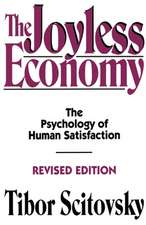Cooperation, Community, and Co-Ops in a Global Era: International and Cultural Psychology
Autor Carl Ratneren Limba Engleză Hardback – 16 noi 2012
| Toate formatele și edițiile | Preț | Express |
|---|---|---|
| Paperback (1) | 556.64 lei 38-44 zile | |
| Springer – 13 dec 2014 | 556.64 lei 38-44 zile | |
| Hardback (1) | 564.51 lei 38-44 zile | |
| Springer – 16 noi 2012 | 564.51 lei 38-44 zile |
Din seria International and Cultural Psychology
- 18%
 Preț: 1117.03 lei
Preț: 1117.03 lei - 17%
 Preț: 490.68 lei
Preț: 490.68 lei - 15%
 Preț: 587.02 lei
Preț: 587.02 lei - 15%
 Preț: 647.40 lei
Preț: 647.40 lei - 5%
 Preț: 718.10 lei
Preț: 718.10 lei - 24%
 Preț: 797.37 lei
Preț: 797.37 lei - 18%
 Preț: 1693.62 lei
Preț: 1693.62 lei - 18%
 Preț: 1010.48 lei
Preț: 1010.48 lei - 18%
 Preț: 784.13 lei
Preț: 784.13 lei - 18%
 Preț: 780.52 lei
Preț: 780.52 lei - 18%
 Preț: 946.24 lei
Preț: 946.24 lei - 15%
 Preț: 641.85 lei
Preț: 641.85 lei - 18%
 Preț: 952.57 lei
Preț: 952.57 lei - 5%
 Preț: 1031.68 lei
Preț: 1031.68 lei - 15%
 Preț: 637.13 lei
Preț: 637.13 lei - 5%
 Preț: 708.78 lei
Preț: 708.78 lei - 15%
 Preț: 476.75 lei
Preț: 476.75 lei - 18%
 Preț: 1120.18 lei
Preț: 1120.18 lei - 15%
 Preț: 638.76 lei
Preț: 638.76 lei - 20%
 Preț: 556.09 lei
Preț: 556.09 lei - 15%
 Preț: 700.10 lei
Preț: 700.10 lei - 15%
 Preț: 697.94 lei
Preț: 697.94 lei - 5%
 Preț: 1095.90 lei
Preț: 1095.90 lei - 18%
 Preț: 999.94 lei
Preț: 999.94 lei - 24%
 Preț: 842.27 lei
Preț: 842.27 lei - 15%
 Preț: 646.62 lei
Preț: 646.62 lei - 18%
 Preț: 947.95 lei
Preț: 947.95 lei - 18%
 Preț: 892.74 lei
Preț: 892.74 lei - 5%
 Preț: 1098.27 lei
Preț: 1098.27 lei - 20%
 Preț: 552.44 lei
Preț: 552.44 lei - 15%
 Preț: 649.54 lei
Preț: 649.54 lei - 18%
 Preț: 785.55 lei
Preț: 785.55 lei - 18%
 Preț: 947.67 lei
Preț: 947.67 lei - 18%
 Preț: 947.98 lei
Preț: 947.98 lei - 18%
 Preț: 952.26 lei
Preț: 952.26 lei
Preț: 564.51 lei
Preț vechi: 705.64 lei
-20% Nou
Puncte Express: 847
Preț estimativ în valută:
108.02€ • 113.08$ • 89.38£
108.02€ • 113.08$ • 89.38£
Carte tipărită la comandă
Livrare economică 01-07 aprilie
Preluare comenzi: 021 569.72.76
Specificații
ISBN-13: 9781461458241
ISBN-10: 1461458242
Pagini: 248
Ilustrații: XVIII, 230 p.
Dimensiuni: 155 x 235 x 18 mm
Greutate: 0.48 kg
Ediția:2013
Editura: Springer
Colecția Springer
Seria International and Cultural Psychology
Locul publicării:New York, NY, United States
ISBN-10: 1461458242
Pagini: 248
Ilustrații: XVIII, 230 p.
Dimensiuni: 155 x 235 x 18 mm
Greutate: 0.48 kg
Ediția:2013
Editura: Springer
Colecția Springer
Seria International and Cultural Psychology
Locul publicării:New York, NY, United States
Public țintă
ResearchCuprins
Introduction To The Praxis of Cooperative Behavior.- General Aspects of Cooperation That Potentiate But Do Not Determine Concrete Cooperation.- The Dialectical Relation between Cooperation and Capitalism: Cooperation Before, During, and After The Advent of Capitalism.- Historical Roots Of Contemporary Cooperatives.- Cooperatives’ March To Modernity: Market-oriented, Apolitical Cooperation.- Cooperation in Practice: Successes and Shortcomings of The International Cooperative Movement Today.- Explaining Co-op Weaknesses In Terms of The Dominant Cooperative Paradigm.- An Enriched, Viable, Necessary Cooperative Paradigm for Our Era.
Recenzii
From the reviews:
“Ratner (Institute for Cultural Research and Education) proposes that the solutions to the world problems lie within the communal roots of cooperative behaviors. He argues for a social paradigm shift, positioning cooperation as a broad praxis rooted in various social sciences. … Ratner’s book is educational and stimulating. Summing Up: Recommended. Upper-division undergraduates through faculty and professionals.” (I. I. Katzarska-Miller, Choice, Vol. 50 (9), May, 2013)
“Ratner (Institute for Cultural Research and Education) proposes that the solutions to the world problems lie within the communal roots of cooperative behaviors. He argues for a social paradigm shift, positioning cooperation as a broad praxis rooted in various social sciences. … Ratner’s book is educational and stimulating. Summing Up: Recommended. Upper-division undergraduates through faculty and professionals.” (I. I. Katzarska-Miller, Choice, Vol. 50 (9), May, 2013)
Notă biografică
Dr. Ratner is a renowned cultural experience who has made original contributions to the field of cultural psychology. He has published 6 books in the field (three by Springer) along with numerous articles. He has travelled extensively internationally, having lived in China for two years, and 5 months in India at the prestigious Nehru University in New Delhi.
Textul de pe ultima copertă
Cooperation, Community, and Co-ops in a Global Era
Carl Ratner
Human history is largely the story of communities, punctuated by examples of cooperatives--in fact, our level of cooperative behavior is one of the attributes that makes us most human. In recent years, however, concepts such as rugged individualism and social Darwinism have competed against cooperative ideas for supremacy, and today's climate of global economic crisis has found these "me-first" concepts wanting.
Now, an important new book posits that current political solutions to acute world problems are inadequate, and that modern society needs to look to its communal roots for recovery--and perhaps survival. Cooperation, Community, and Co-ops in a Global Era argues for a societal paradigm shift and details how such a transformation might be accomplished. Taking the evolutionary long view, its author demonstrates how cooperative principles can make a social system not just more efficient and less wasteful of time and resources, but also more democratic, empowering, and fulfilling for everyone involved. In making this compelling case, he:
Social scientists, co-op members, policy makers, social philosophers, mediators, community builders, social reformers, and all those concerned with a viable solution to contemporary crises will find Cooperation, Community, and Co-ops In A Global Era stimulating and informative.
Carl Ratner
Human history is largely the story of communities, punctuated by examples of cooperatives--in fact, our level of cooperative behavior is one of the attributes that makes us most human. In recent years, however, concepts such as rugged individualism and social Darwinism have competed against cooperative ideas for supremacy, and today's climate of global economic crisis has found these "me-first" concepts wanting.
Now, an important new book posits that current political solutions to acute world problems are inadequate, and that modern society needs to look to its communal roots for recovery--and perhaps survival. Cooperation, Community, and Co-ops in a Global Era argues for a societal paradigm shift and details how such a transformation might be accomplished. Taking the evolutionary long view, its author demonstrates how cooperative principles can make a social system not just more efficient and less wasteful of time and resources, but also more democratic, empowering, and fulfilling for everyone involved. In making this compelling case, he:
- Explains cooperation as a form of life that can resolve current crises and enhance human development.
- Shows how most of human history has been cooperative.
- Explains modern obstacles to cooperation that must be overcome.
- Explicates a cooperative social philosophy: its psychology, social relations, property relations, governance.
- Articulates a psychological theory of cooperation that includes comparative research with animals, evolutionary processes, biological issues, and cultural issues.
- Explains how cooperative enterprises have practicedcooperation.
- Provides examples of co-op strengths and weaknesses from on-site research into European and American co-ops.
- Articulates a revisionist history of the cooperative movement that includes relations with socialist theory and the labor movement.
- Explains implications of cooperation for democracy and interpersonal relations such as love.
Social scientists, co-op members, policy makers, social philosophers, mediators, community builders, social reformers, and all those concerned with a viable solution to contemporary crises will find Cooperation, Community, and Co-ops In A Global Era stimulating and informative.
Caracteristici
Analysis of attempts to practice cooperation Guide for organizations to effectively promote cooperative behavior Presents a model for transforming behavior by reconstructing its cultural basis Includes supplementary material: sn.pub/extras













